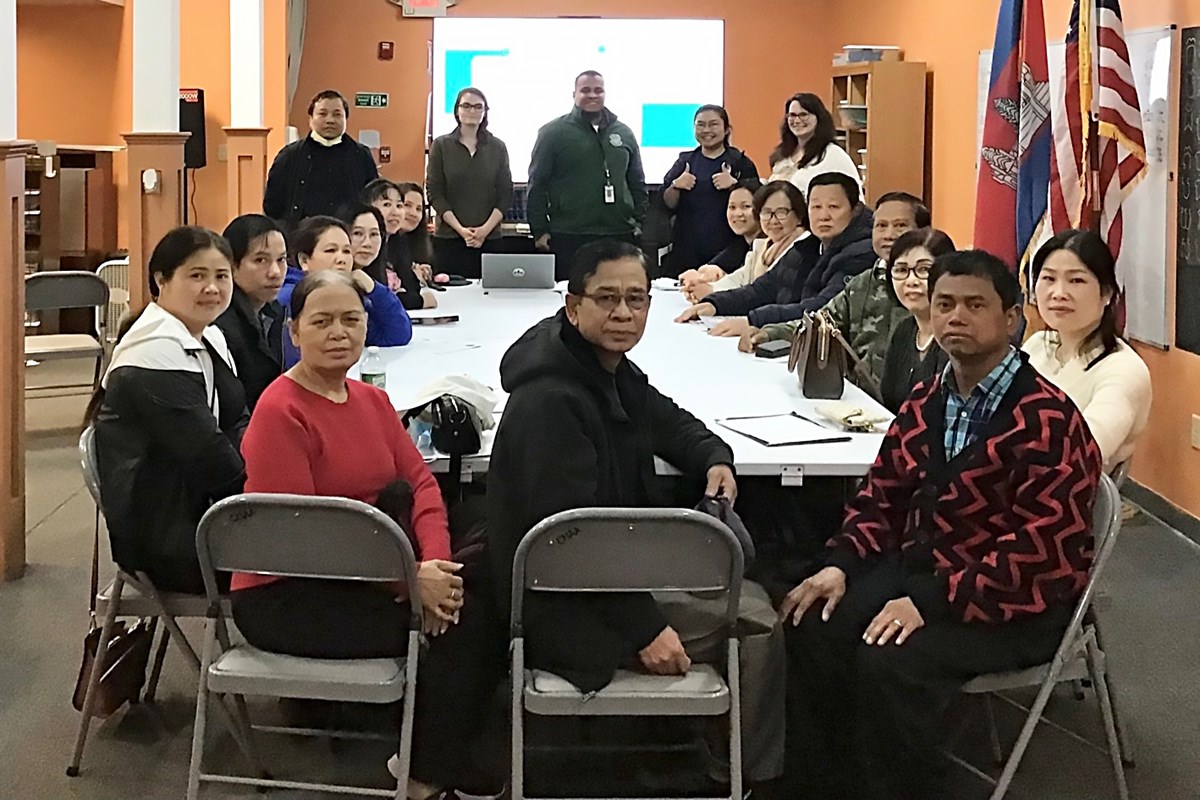 Image by Courtesy
Image by Courtesy
In the Massachusetts House of Representatives chamber, environmental studies master’s student Lucia Cheney ’22 took a deep breath before addressing local lawmakers.
“I had never spoken in front of state representatives before,” says Cheney, a native of Sharon, Massachusetts. “I was definitely nervous, but also excited.”
Cheney traveled to the Massachusetts State House on May 7 to brief members of the Committee on Telecommunications, Utilities and Energy about the impacts of wood bioenergy and a potential way to increase participation in decarbonization programs. She presented alongside Juliette Rooney-Varga, a professor in the Department of Environmental, Earth and Atmospheric Sciences, for whom she serves as a research assistant.
“The committee is aware of what we’re doing on campus, and they wanted to connect with us,” says Rooney-Varga, who is also the director of the Climate Change Initiative and a co-director of the Rist Institute for Sustainability and Energy. “We’re interested in serving as a resource for them.”
Policy Proposals
As Massachusetts strives to achieve net zero greenhouse gas emissions by 2050, in part by moving away from fossil fuels, some legislators wondered if wood bioenergy is a good alternative. Rooney-Varga and Cheney said no.
Bioenergy is a form of renewable energy that comes from organic materials, such as wood. It is often considered carbon-neutral because it’s assumed that any carbon emitted from the energy source will be absorbed back when the organic materials, like trees, regrow.
“That assumption has a lot of problems with it,” Rooney-Varga told the House committee.
Trees can take more than a century to regrow into a mature forest. In the meantime, the carbon emitted from burning trees for energy contributes to global warming, which can result in extreme events such as hurricanes, sea-level rise and glacier melting.
“That damage that’s done is not reversed when the carbon is sequestered back,” Rooney-Varga said. “It’s permanent damage.”
In 2022, Massachusetts removed wood from its Renewable Energy Portfolio Standard (RPS), which requires electricity suppliers to obtain a percentage of their electricity from renewable energy sources. However, woody biomass remains in the state’s Alternative Energy Portfolio Standard (APS), which provides incentives for businesses, institutions and government to use alternative energy sources.
“Massachusetts is on the cusp of global leadership on this issue by not including wood in the RPS, but it’s time to close the loopholes that encourage the use of wood bioenergy,” said Rooney-Varga, who proposed the removal of wood bioenergy from the APS among other policy recommendations.
 Image by Courtesy
Image by Courtesy
Program Adoption
Residents and business owners can do their part to mitigate greenhouse gas emissions by making energy-efficient upgrades to their homes and establishments. Programs, such as Mass Save, offer incentives for those who make such upgrades; however, these programs typically fail to reach historically underrepresented groups, such as those with limited English proficiency.
Funded by a $150,000 grant from the Massachusetts Clean Energy Center, Rooney-Varga and Cheney are working with the Cambodian Mutual Assistance Association of Greater Lowell (CMAA) to increase program participation.
“We’re trying to build energy ambassadors who can spread knowledge and get people enrolled in programs by leveraging their existing ties to the Cambodian community,” Cheney explained to the House committee.
Rooney-Varga and Cheney are analyzing whether people are more likely to adopt energy efficiency programs if they learn about them from trusted community members. They’ve already held workshops with the CMAA, where staff from the nonprofit organization provided information in Khmer to make the programs more accessible.
“UMass Lowell has a special role to play in this work,” Rooney-Varga said. “We’re an institution that is walking the walk.”


